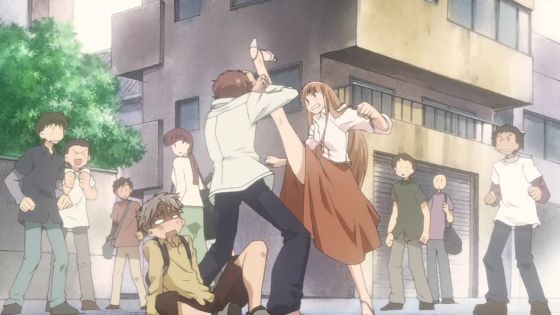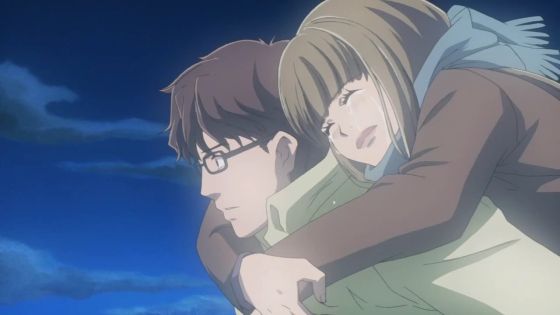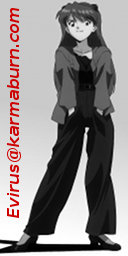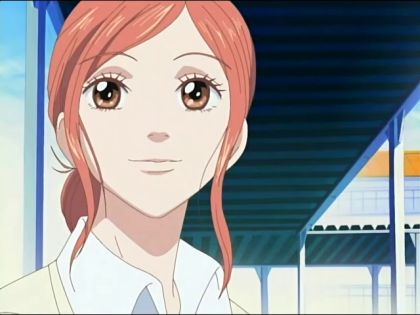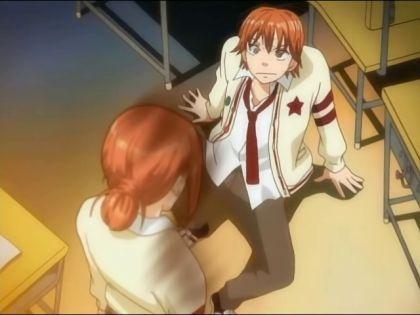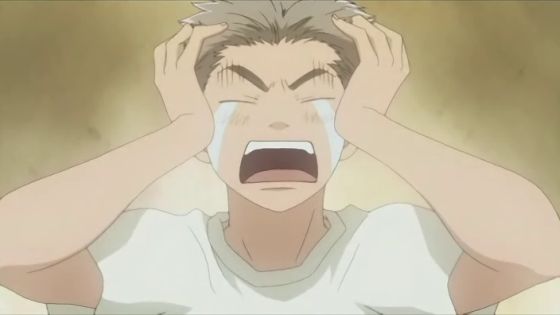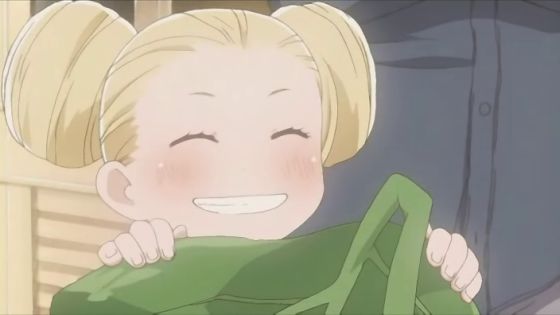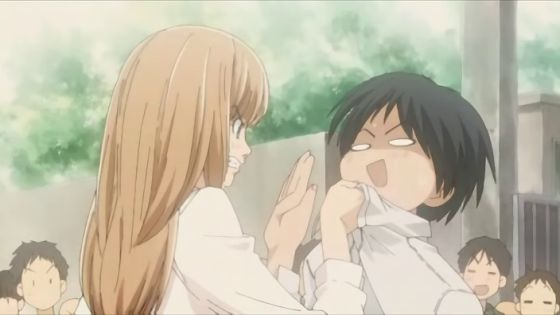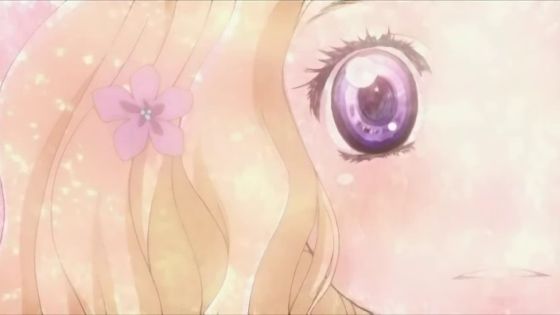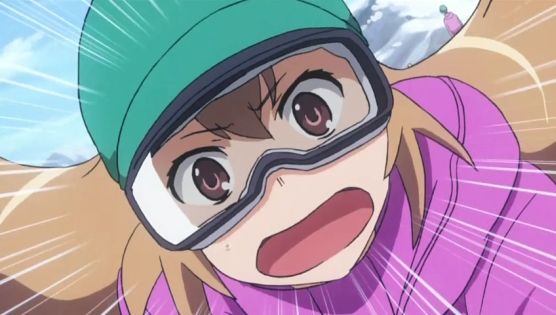
I really wasn't expecting an Ayu cameo.
I had moderate praise for the first half of Toradora! However, I also implied it wasn't as good as Honey and Clover. Others disagreed, again invoking Honey and Clover. After 21 episodes, I still believe Toradora! is the best series of the current season, but I maintain that it is still not nearly as good as Honey and Clover.
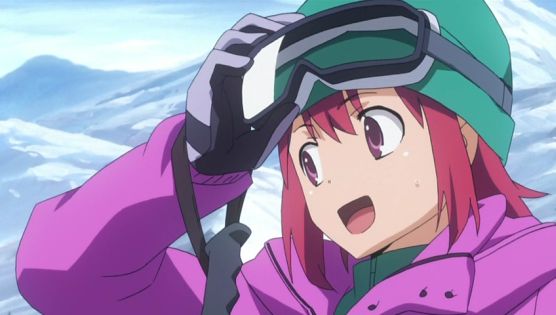
Minori is still the Best Girl, but I might just be saying that because
of Yui Horie. And because she throws right, bats left.
This is not meant as a slight against Toradora!, as it is still quite enjoyable. It rises above the conventions of its idiom and exceeds the assumptions and expectations I had for the series. I thought I knew what Toradora! was going to be about, and I thought I knew how the plot was going to play out, but thankfully J.C. Staff still has a few tricks up its sleeve, and keeps Toradora! from languishing in the morass of high school love comedies that plague anime. Nevertheless, although Toradora! is much better than I expected, it still suffers from a number of potentially damning flaws.
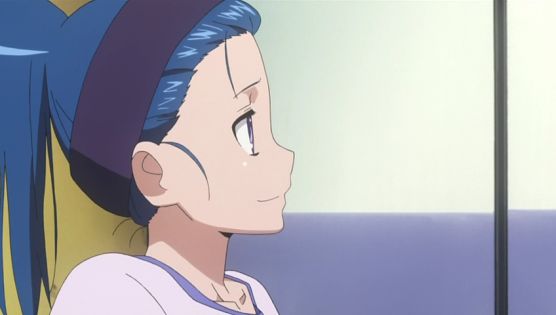
It's hard to deny Ami, though. Ami is awesome.
[Warning: Minor spoilers hereinafter for episode 21. Nothing you wouldn't have easily guessed by now, though.]
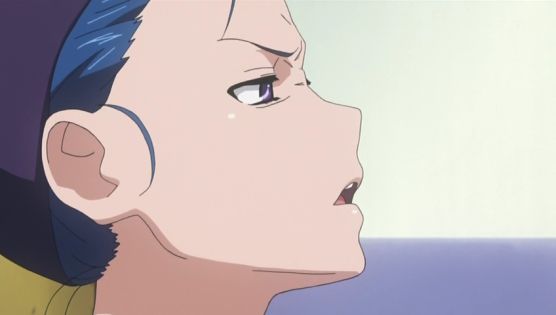
Back away from Ami.
First—and let's be honest here—Toradora! is still a harem comedy. It's not your typical harem comedy because Ryuuji isn't a spineless tool, but although decent male protagonists are rare, they are not unknown among harem comedy males. Kazuya from Hand Maid May comes to mind, and if you're willing to characterize School Rumble and Nadesico as harem comedies (look, not exclusively, but they still are), then Harima and Akito qualify as well. But the problem with harem comedies is that most of the romantic tension is defused. The question isn't if Male Protagonist will get together with someone, but when. Usually, with whom isn't even an issue, as the First Girl He Sees Clause proves quite reliable in this respect. At this point in Toradora!, Ryuuji has three viable love interests. The remaining drama in the show boils down to which girl he will pick, and what is to happen to the rejected. That the answer is not entirely obvious at this point (although smart money should heavily favor the worst girl) lends credit to Toradora!
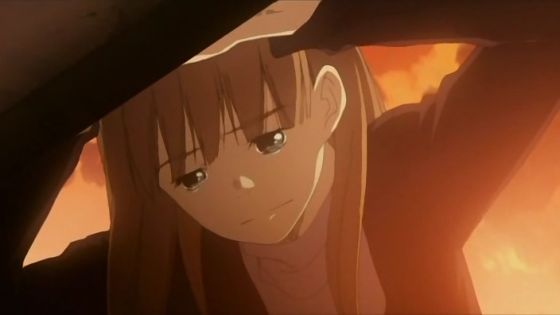
Even Ami can't compare with Yamada, though. Poor girl.
Compare this with Honey and Clover. The earlier J.C. Staff production offers multiple story lines regarding unrequited love. In each case, there is no assurance the characters in question will find love and happiness. Quite the contrary, for the most part, their romances seem more doomed with each passing episode. It is this balance of hope and despair that drives Hachimitsu to Clover.
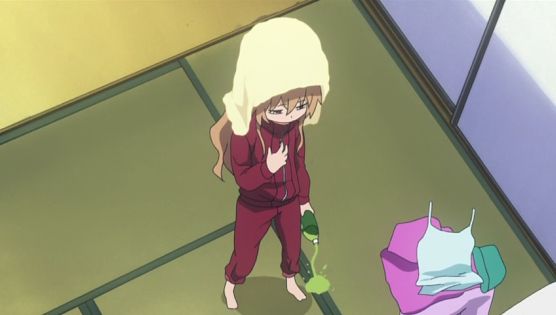
Taiga? She's a frickin' slob.
Technically, all harem comedies include tales of unrequited love as well, at least regarding the girls not chosen. But harem comedies lack the aforementioned despair component, as Male Protagonist could surely offer each of the girls his love were it not for Simple Contrivances and General Spinelessness. Perhaps more importantly, harem comedies also focus on the object of everyone's affection (i.e., the male lead), which changes the dynamic entirely unless the show also includes a primary love interest within the harem for Male Protagonist to actively and indefatigably pursue with incorruptible loyalty despite no assurance of potential dere-dere B.S. reciprocation.
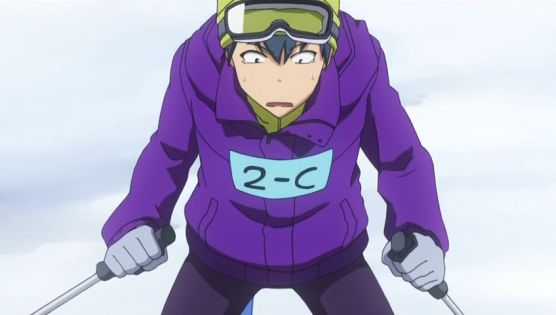
Ryuuji isn't an ass clown, but he's still kind of a putz.
Make no mistake. Toradora! is told from Ryuuji's point of view. Because of this, Toradora! is ascendant during episodes and moments when he is obsessed with Minori. Likewise, the unrequited love stories of the other characters elevate the show as well. But after episode 21, I am hard pressed to imagine the series avoiding a sharp dive in quality unless it takes the courageous route by taking the story in unexpected directions. I'm hoping for this (presumably crueler) ending to Toradora! It is not a happy way to wrap up the series, but it is the respectable way to go, and it is a damn sight better than the ending episode 21 is apparently establishing. Quite frankly, though, I fear J.C. Staff does not have the sand for it. To do so, it will have to make a lot of "shippers" unhappy and disappoint a lot a viewers. It will make for a better show—too late to catch Honey and Clover, but perhaps sufficient to avoid stumbling before Shikabane Hime should Kuro finish unexpectedly strong. (It's Gainax. You can't count that possibility out. Maybe it'll end like Mahoromatic, but perhaps it will end like Top wo Nerae.)
